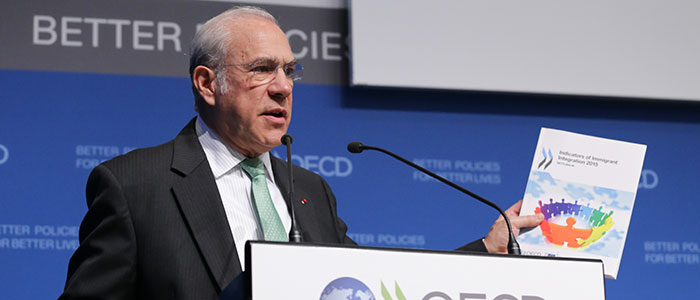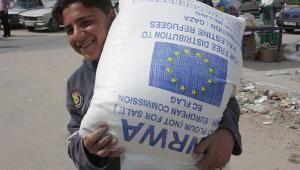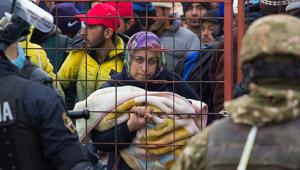angel_gurria_oecd.jpg

Angel Gurría speaking at the press conference in Paris yesterday. Credit: OECD/Andrew Wheeler
Filippo Grandi’s comments came at a joint press conference with OECD secretary general Angel Gurría in Paris yesterday, where the pair advocated the benefits of quick and successful integration of refugees and urged European countries to pursue a more welcoming approach.
Grandi accepted that it is necessary to try to moderate movements of people on this scale. However he said debates about how to prevent refugees from coming to Europe and threats to close borders were dwarfing conversation about how to best integrate them into Europe’s societies, which was dangerous not only for refugees but for the bloc’s economy and political union.
Gurría said Europe cannot “opt out” of its role in the crisis and urged member states to recognise the rewards refugees can bring if successfully integrated. “We have not just a moral duty but a clear economic incentive to help the millions of refugees living in OECD countries, to develop the skills they need to work productively, safely and happily in the jobs of tomorrow.”
He noted that fears around refugee’s arrival “do not hold up to scrutiny”, and that OECD showed well-managed migration could play a positive role in the economy, and that immigrants are generally not a burden to the public purse.
“They pay taxes, they pay social security contributions and they receive in many cases less in benefits than they take,” he stated. “They also contribute to innovation, they contribute to economic growth and, when you’re talking about ageing societies, they represent a hope for the future.”
However, he acknowledged that considerable investments would be needed in the short term and that the reception and integration of large numbers of refugees poses considerable challenges.
Their comments came following the passing of controversial new asylum laws in Denmark and criticism of Sweden and Finland’s plans to deport tens of thousands of refused asylum seekers.
Grandi said Denmark’s laws, which will see the state confiscate the cash and valuables of migrants, were not sound policy.
“We are not going to interfere with the legislation of states, but we believe it is not a very good idea to take resources away from refugees, exactly because they need them. These are people that frankly flee with very little, so to take away that little doesn’t seem a very sound policy.”
Germany, where some 1.1 million migrants found refuge last year, has also moved to toughen its asylum laws, announcing it will likely refuse asylum to migrants from Algeria, Morocco and Tunisia and block some migrants from bringing their families to join them for two years.
Grandi said: “In order to play a full role in the social, economic and cultural life of their host country, refugees need to achieve equality of rights and opportunities. States have an important role in this process, ensuring that refugees play a positive and active part in the process, particularly in terms of the services provided to them and in ensuring they are received by welcoming host communities.”













